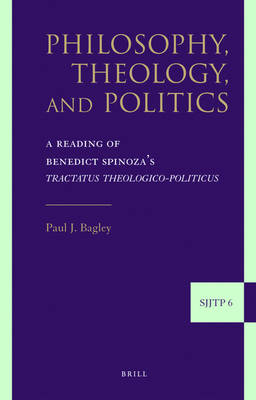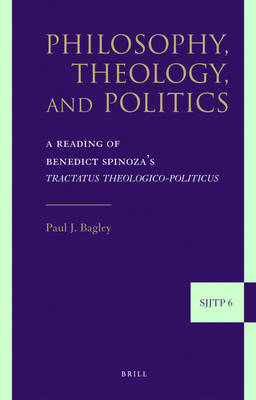
- Afhalen na 1 uur in een winkel met voorraad
- Gratis thuislevering in België vanaf € 30
- Ruim aanbod met 7 miljoen producten
- Afhalen na 1 uur in een winkel met voorraad
- Gratis thuislevering in België vanaf € 30
- Ruim aanbod met 7 miljoen producten
Zoeken
Philosophy, Theology, and Politics
A Reading of Benedict Spinoza's Tractatus Theologico-Politicus
Paul Bagley
€ 248,95
+ 497 punten
Omschrijving
The interpretation of Spinoza's theologico-political teaching remains a matter of controversy. Is Spinoza simply addressing contemporary difficulties in The Netherlands of the late 1660s? Or is he attempting to solve a more basic and enduring human problem? In this book, it is argued that against the background of contemporary concerns, Spinoza treats the more fundamental "natural problem" of reconciling those who live by "the dictates of reason" with those who live by "the urgings of the passions." Based upon his accounts of theology, human nature, and politics, Spinoza fashions a theocratic or "theologico-political solution" to the "natural problem" by holding that the "universal religion" and the democratic liberalism of the treatise share a common purpose. Thus, Spinoza becomes a "new Moses."
Specificaties
Betrokkenen
- Auteur(s):
- Uitgeverij:
Inhoud
- Aantal bladzijden:
- 254
- Taal:
- Engels
- Reeks:
- Reeksnummer:
- nr. 6
Eigenschappen
- Productcode (EAN):
- 9789004164857
- Verschijningsdatum:
- 2/05/2008
- Uitvoering:
- Hardcover
- Formaat:
- Genaaid
- Afmetingen:
- 160 mm x 240 mm
- Gewicht:
- 604 g

Alleen bij Standaard Boekhandel
+ 497 punten op je klantenkaart van Standaard Boekhandel
Beoordelingen
We publiceren alleen reviews die voldoen aan de voorwaarden voor reviews. Bekijk onze voorwaarden voor reviews.











